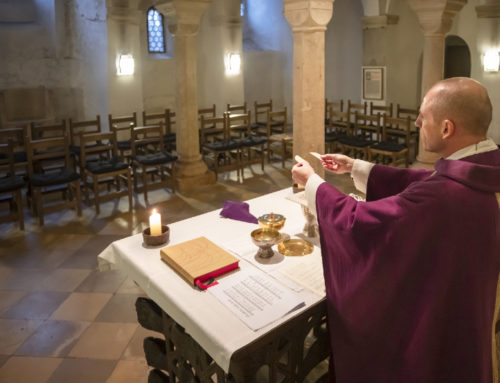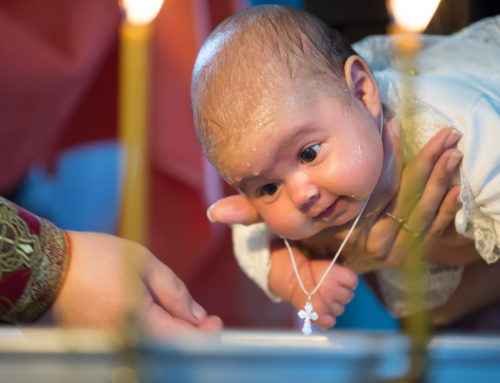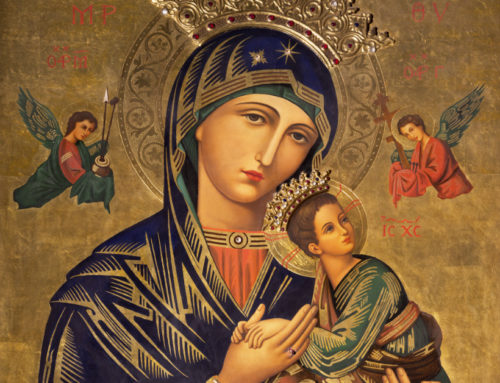
Throne Bernini Holy Spirit Dove, Saint Peter’s Basilica in Rome
Above all else you should strive to acquire three things, and so begin to attain what you seek. The first is freedom from anxiety with respect to everything, whether reasonable or senseless — in other words, you should be dead to everything. Secondly, you should strive to preserve a pure conscience, so that it has nothing to reproach you with. Thirdly, you should be completely detached, so that your thoughts incline towards nothing worldly, not even your own body.
Then sit down in a quiet cell, in a corner by yourself, and do what I tell you. Close the door, and withdraw your intellect from everything worthless and transient. Rest your beard on your chest, and focus your physical gaze, together with the whole of your intellect, upon the centre of your belly or your navel. Restrain the drawing-in of breath through your nostrils, so as not breathe easily, and search inside yourself with your intellect so as to find the place of the heart, where all the powers of the soul reside. To start with you will find there darkness and an impenetrable density. Later, when you persist and practise this task day and night, you will find, as though miraculously an unceasing joy. For as soon as the intellect attains the place of the heart, at once it sees things of which it previously knew nothing. It sees the open space within the heart and it beholds itself entirely luminous and full of discrimination. From then on, from whatever side a distractive thought may appear, before it has come to completion and assumed a form, the intellect immediately drives it away and destroys it with the invocation of Jesus Christ. From this point onwards the intellect begins to be full of rancour against the demons and, rousing its natural anger against its noetic enemies, it pursues them and strikes them down. The rest you will learn yourself, with God’s help, by keeping guard over your intellect and by retaining Jesus in your heart. As the saying goes, ‘Sit in your cell and it will teach you everything.’
Question: Why cannot the monk attain perfection by means of the first and second form of keeping guard?
Answer: Because he does not embark on them in the proper order.
St. John Klimakos likens these methods to a ladder, saying, ‘Some curtail their passions; others practise psalmody, persevering most of the time in this; others devote themselves to prayer; and others turn their gaze to the depths of contemplation. When examining this question let us use the analogy fo a ladder.’ Now those who want to ascend a ladder do not start at the top and climb down, but start at the bottom and climb up. They ascend the first step, then the second, and so the rest in turn. In this way we can ascend from earth to heaven. If, then, we wish to attain the perfect stature of the fulness of Christ, like children who are growing up we must start to climb the ladder set before us, until progressing step by step we reach the level of a full-grown man and then of an old man.
The first age in the monastic state is to curtail the passions. This is the stage of beginners.
The second rung or stage whereby a person grows up spiritually from adolescence to youth is assiduously to practise psalmody. For when the passions have been curtailed and laid to rest, psalmody brings delight to the tongue and is welcomed by God, since it is not possible to sing to the Lord in a strange land (cf. Ps. 137:4), that is to say, from an impassioned heart. This is the mark of those who are beginning to make progress.
The third rung or stage in life, marking the spiritual transition from youth to manhood, is to persevere in prayer. this is the stage of those who are already well advanced. Prayer differs from psalmody just as the full-grown man differs from the youth and the adolescent, according to the scheme that we are following.
In addition there is a fourth rung or stage in spiritual life, that of the old man with grey hairs. This signifies undeviating absorption in contemplation, and this is the state of the perfect. So the journey is complete and the top of the ladder has been reached.
Since this is the way in which matters have been appointed and arranged by the Spirit, it is not possible for a child to grow up to manhood and to attain old age except by mounting the first rung of the ladder and so climbing up to perfection by the four steps in succession.
Excerpt from the Philokalia: The Three Methods of Prayer attributed to St. Symeon the New Theologian




